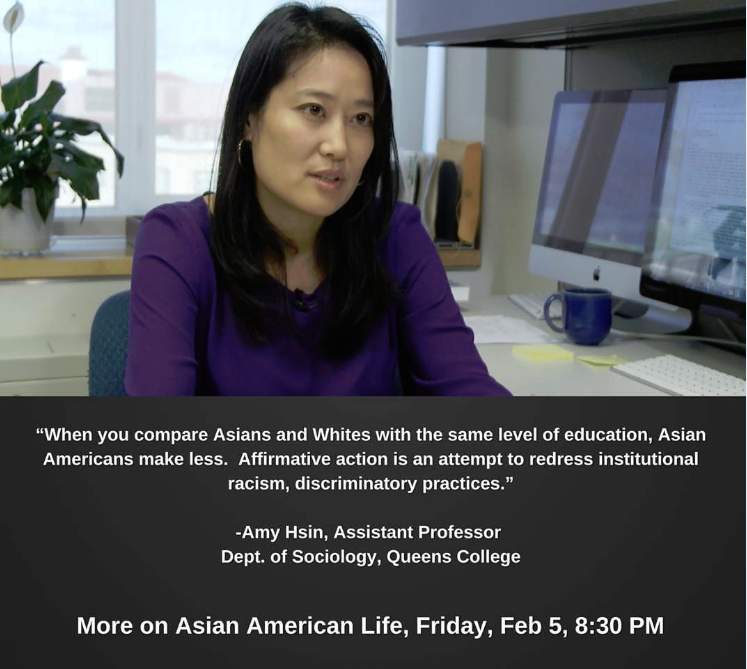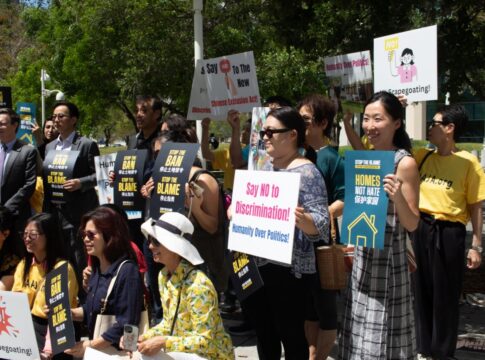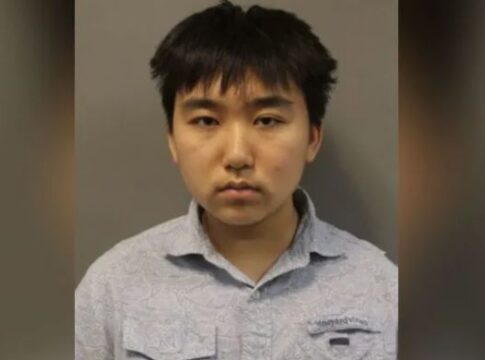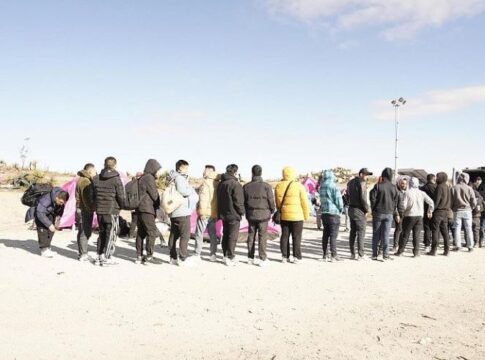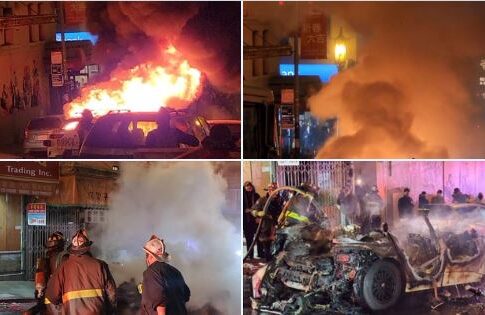By Paul Lin
Correspondent, “Asian American Life” @AALCUNYTV
Should race be a factor in deciding who gets into college? While many institutions employ some form of affirmative action in college admissions, a case now before the U.S. Supreme Court may put a stop to that practice.
LATEST STORIES
“Whenever these issues come up before the Supreme Court there is at least the potential that the court through the stroke of its pen could change affirmative action completely,” says Victor Goode, a professor at CUNY School of Law.
In Fisher v. University of Texas at Austin, Abigail Fisher, a white student, has alleged racial discrimination after being denied admission. The case first went up to the Supreme Court in 2012 and returned in December 2015. A ruling is expected by this summer.
Deliberations on the case are taking place even as race-related incidents crop up on campuses nationwide, suggesting to experts that even though diversity has increased, changes need to come in the way colleges diversify the student body.
Asian Americans have been divided on the issue of race-based affirmative action, which has helped many students of color – including Asians – gain entry to higher education and some of the most elite and competitive universities.
Opponents of affirmative action allege that Asians are held to higher standards than others and face quotas at Ivy League schools and other colleges. Bias complaints and lawsuits have begun to fly as frustration levels rise.
While Asians make up less than 6% of the U.S. population, the demographic already has a large presence on the campuses of many highly selective schools. At Columbia University, for example, 27% of the Class of 2019 is Asian. Some Asian American groups, however, would argue that the numbers should be higher because so many highly qualified Asians apply to Ivy League and other top schools.
For those who can afford it, some parents have turned to college coaches to learn strategies to help their children stand out, paying thousands, tens and hundreds of thousands of dollars in fees.
Top schools “are really looking for the recruited athlete to help their baseball team,” says Brian Taylor, an owner at Ivy Advantage. “They’re looking for the great science researcher, the one who’s won the Intel science search semifinal.”
Asian Americans have their reasons for wanting to get into top universities. The cachet of an Ivy League education can lead to better jobs.
“Ivy league schools are seen as the gateway to power in America,” Prof. Goode says. “These half-dozen schools are the basic feeder schools to entrée to the top levels of government, business and industry.”
However Supreme Court justices rule this summer, university administrators and education think tanks already are gearing up for a college admissions world without affirmative action.
Beyond that, experts suggest students apply to schools where they will be appreciated, and to change the way they think about what makes a school worth attending.
“We’re killing ourselves to try and get into a handful of elite schools when really getting into those types of schools doesn’t really matter in terms of the types of jobs you get and the type of life you will live,” says Amy Hsin, a sociology professor at Queens College.
For more on affirmative action in higher education, watch this month’s Asian American Life produced by CUNY-TV.
Other stories this month include:
For February’s ASIAN AMERICAN LIFE and host Ernabel Demillo ring in the New Lunar Year (Year of the Monkey) at The Museum of Chinese in America (MOCA), introducing a close look at some of the latest Asian American headline news that’s been creating a buzz.
This month’s stories:
“COMFORT WOMEN” AGREEMENT
Correspondent Minnie Roh reports on the latest update on the backlash surrounding Japan and South Korea’s agreement over the “Comfort Women” dispute – specifically on a backdoor deal to provide reparations to Korean sex slave victims of World War II. Protests have been staged all across the world, including here in New York. An exclusive interview with one of the victims, Lee Ok-Sun, includes her personal story and struggles. Phyllis Kim, Director of the Korean American Forum of California, represents many of the victims.
TESTED
In March, thousands of middle school students will learn their fate as they wait for word on admission into New York’s elite public high schools. Tested is a documentary that examines high stakes testing and Kyung Yoon reports the latest news on this competitive process. Guests include Curtis Chin, Filmmaker and Director of Tested; Inrii Gonzalez, a student at Stuyvesant High School; and Ana Gonzalez, Inrii’s mother.
(AsAmNews is an all-volunteer effort of dedicated staff and interns. You can show your support by liking our Facebook page at www.facebook.com/asamnews, following us on Twitter and sharing our stories.)


